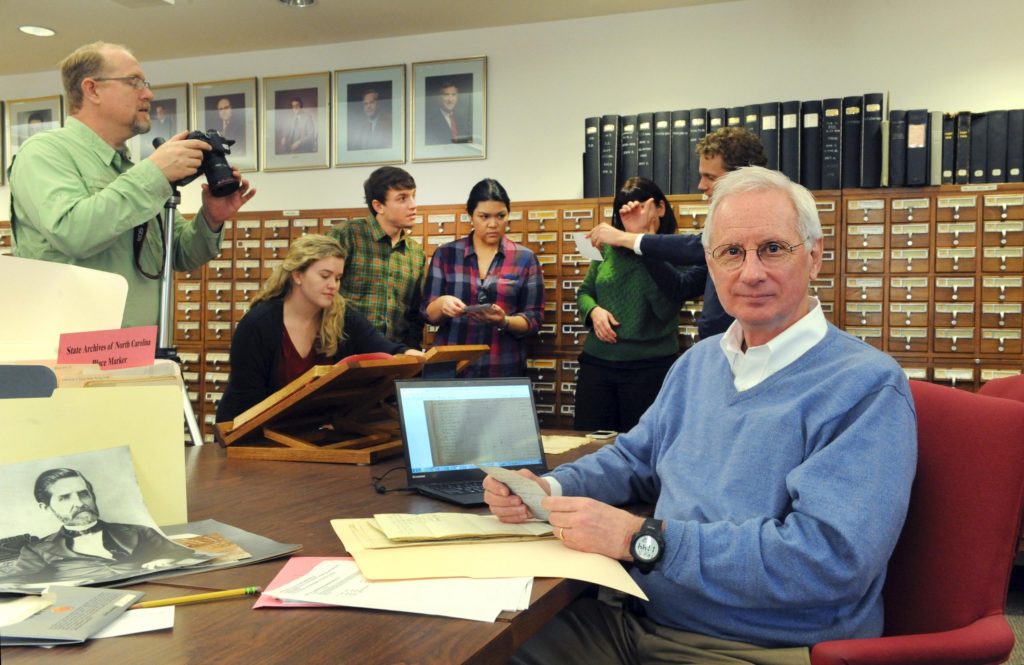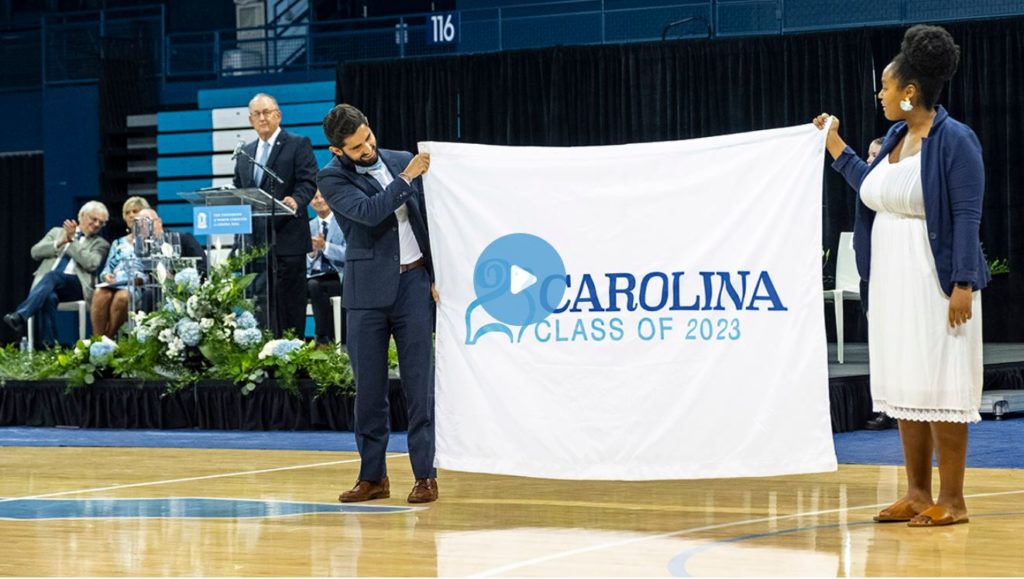
An $867,000 grant to the University of North Carolina at Chapel Hill will fund a project to create a series of sophisticated videos and other materials to counteract jihadist propaganda that targets young people.
“What makes our project so innovative is that these videos will be produced by Carolina students—experts in understanding how to communicate with their peers, what video games and movies are popular, what messages will feel authentic—in conjunction with UNC faculty who are experts in jihadist propaganda, experts in video and gaming production, experts in persuasion strategies,” said Cori Dauber, professor in the department of communication, who also teaches in the curriculum of peace, war and defense in the College of Arts and Sciences.
The UNC grant, for one year, was the largest of the 31 issued to institutions by the U.S. Department of Homeland Security’s Countering Violent Extremism Program.
Dauber, a former visiting research professor of the Strategic Studies Institute of the U.S. Army War College, is an expert in analyzing and decoding ISIL (sometimes called ISIS) propaganda materials and has presented her findings to the Council on Foreign Relations. She is a co-principal investigator on the grant along with Mark Robinson, director of the Multimedia Lab at UNC. The two have collaborated in the past on research analyzing the production means and methods of jihadist materials, especially those of ISIL.
Dauber and Robinson describe their process of working with students “peer-to-peer plus.”
“We have undergraduate students at UNC who are already trained to find, analyze and assess propaganda through courses we currently offer,” said Robinson. The video narratives are conceived and developed by students the same age as the target demographic, but they are supervised by faculty with the necessary expertise.
The idea for the proposal came out of a 2016 Maymester course that Dauber and Robinson team-taught in which students were asked to design and create counter-extremist videos. The two were so impressed with the students’ efforts that they thought the project could be replicated and scaled up, with expert faculty help, to create more sophisticated videos that could be used in communities whose youth are targeted by jihadist propaganda.
The researchers say they are prepared to launch the project as soon as they receive federal funding. Dauber and Robinson envision that two groups of 12 paid undergraduate interns will serve as rapid-response units to counteract propaganda targeted to specific events or groups. Videos will follow established ground rules, such as no one speaks on camera about Islam unless they themselves are Muslim.
“ISIL is a generation ahead of other extremist groups in both the quality and quantity of the propaganda materials they produce,” said Dauber. “They use a wide range of social media platforms. Our approach harnesses the insights and frame of reference of the right age group, has the ability to produce videos quickly to respond to specific messages, and is highly cost effective.”
Robinson believes the effectiveness of the project will lie with its ability to insert itself into the community. “We will be helping communities targeted by the propaganda to solve their problems.”
“These communities are not the villains,” adds Dauber. “When they lose a child to one of these jihadist groups, they’re the victims.”
by Geneva Collins, College of Arts and Sciences



